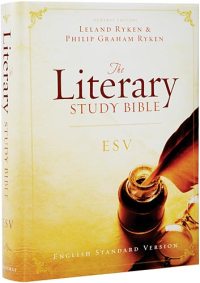 Author: Ron Rhodes
Author: Ron Rhodes
Publisher: Harvest House
Format: Softcover
Publication Date: 2008
Pages: 299
ISBN: 9780736921756
Stars: 3 of 5
The Bible covers a lot of ground in 66 books. Written over a period of 1600 years, in a variety of genres by multiple human authors, its readers have often puzzled over its meaning in any number of places within its pages. Ron Rhodes is here to help, with his book Commonly Misunderstood Bible Verses: Clear Explanations for the Difficult Passages.
Commonly Misunderstood Bible Verses is a mini-commentary covering the entire Bible. It tries to focus on just the sorts of questions the average church-goer would have. The questions are even pulled from Rhodes’ own ministry experience as a traveling speaker. Rhodes does an excellent job of providing succinct and simple answer to most of them.
This book can’t cover every issue or every question, but the following list provides a sampling of the sorts of points that are covered in this nice little volume.
- Are the 6 days of Creation 24 hour days?
- What was the mark of Cain?
- Who is the “angel of the Lord” ?
- How can capital punishment be justified in light of God’s command to not murder?
- Should Christians worship on Saturday (the Sabbath) or Sunday?
- What does it mean when the Bible says God “repents” ?
- Is Proverbs 22:6 a promise or a principle regarding raising our children?
- What is the new covenant?
- What is the abomination that causes desolation?
- Is it wrong to take oaths?
- Did Jesus really die on Friday?
- Is baptism necessary for salvation?
- Are Christians required to evangelize going house-to-house (or door-to-door)?
- Does God have blood?
- Should I be seeking the gift of tongues?
- What is “baptism for the dead” ?
- Are Christians permitted to drink wine?
- Does the Bible condone slavery?
- In Tit. 2:13, is Jesus called “God” ?
- Can a Christian skip church?
- Is James really teaching a person is justified by works?
- How are the elect chosen by God?
- Why are Dan and Ephraim excluded from the list of tribes in Rev. 7?
- If Jesus is the beginning of God’s creation, is He then a created being?
- What is Armageddon?
Not everyone puzzles over each question, nor are they equally important. But this is just a smattering of the kinds of issues addressed in Rhodes’ book. The book is arranged by Scripture reference, so it can be a handy companion to your personal Bible study. If you are in a passage and have a question or can’t understand a verse, try out this book. If your verse isn’t listed in the book, check the topical index, in case the question is still answered by the book.
Rhodes’ approach seems to be from a conservative, dispensational, creationist position. He will address alternate views often, and tries to be fair to other interpretive viewpoints, but the book is clearly biased by his own theological perspective. Then again, which book written by a human author isn’t? Sometimes his answers are given as his personal perspective, as in his treatment of the tongues’ question. He lists his reasons for believing tongues have ceased. Other times, as with the question of the “baptism for the dead” , he is content to give a few positions and not really come down on any one view. With other questions, he presents another view and then details problems with that view. Occasionally, he just gives his own perspective and doesn’t discuss an alternate view. On a few points, he is very careful in laying out a systematic case for his view, as in his discussion of the differing positions on election (he prefers the Calvinistic position).
Some of Rhodes’ questions would only come from a conservative evangelical or even a fundamentalist perspective. That makes the book perhaps more useful to these readers. He explains how Prov. 22:6 isn’t a guarantee that one’s children will automatically turn out right if we just do the right thing as parents. He shows how “house to house” was a description of teaching being done from home-group to home-group, not a prescribed method for evangelizing. He discusses that the Bible permits moderate drinking, but holds that wine in Bible times was weaker than it is today.
Sometimes I found myself upset with the simplicity of the answers. Other times I was impressed. For someone who is aware of all the above points of controversy, the book may not be as useful. But for many Christians, it will be a great tool for help in understanding Scripture more. So I’m happy to recommend the book.
Disclaimer: this book was provided by the publisher for review. The reviewer was under no obligation to provide a positive review.
This book is available for purchase at the following sites: Amazon.com or direct from Harvest House.
 Yesterday, Zondervan Publishing House and Biblica (formerly the International Bible Society) announced plans to revise the NIV in 2011 and discontinue the controversial TNIV. Many conservative evangelicals, and groups like the
Yesterday, Zondervan Publishing House and Biblica (formerly the International Bible Society) announced plans to revise the NIV in 2011 and discontinue the controversial TNIV. Many conservative evangelicals, and groups like the 
 If you are like me you have 2 or 3 study Bibles filed away on a bookshelf somewhere. They rarely get used; and when they do, they aren’t much help. I don’t know why, but study Bibles always seem better on the bookstore shelf than they actually are.
If you are like me you have 2 or 3 study Bibles filed away on a bookshelf somewhere. They rarely get used; and when they do, they aren’t much help. I don’t know why, but study Bibles always seem better on the bookstore shelf than they actually are.